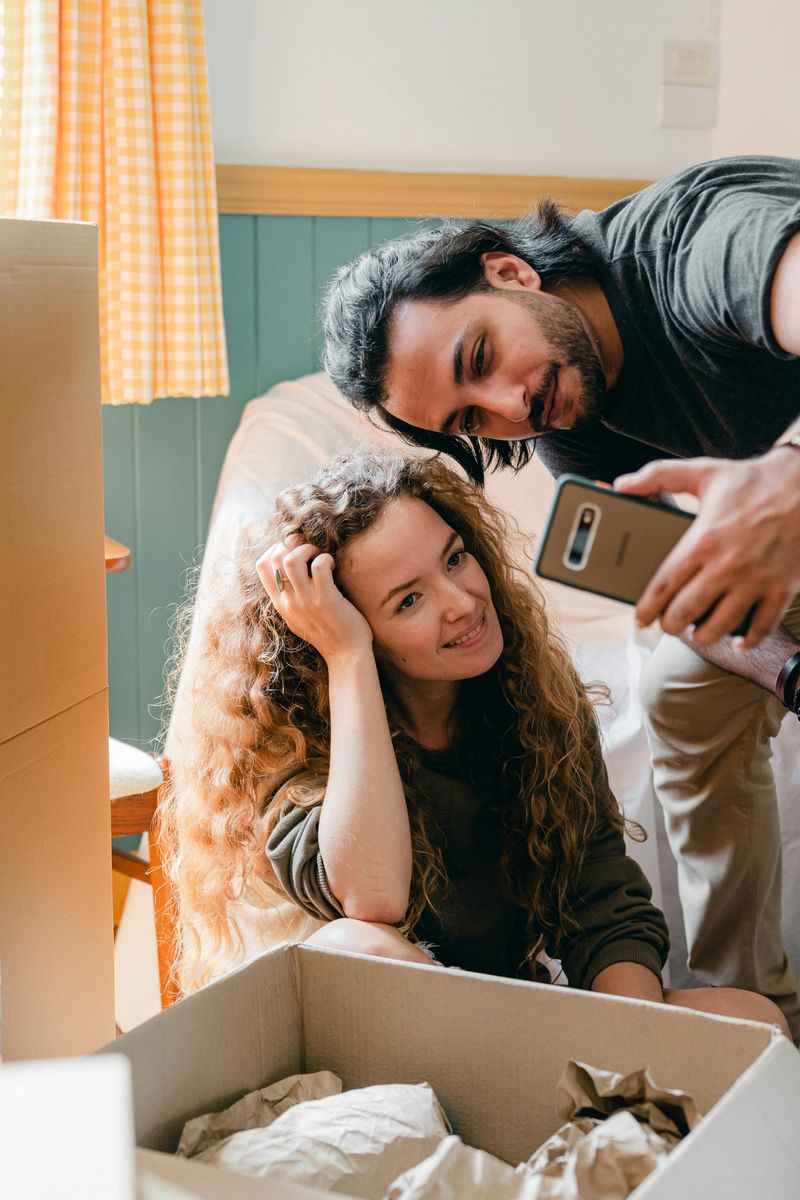Therapists Reveal 12 Habits That Show Someone Isn’t Over Their Ex

Love is a complex journey, and the end of a relationship doesn’t always signal the end of emotional ties. While moving on is essential for emotional wellbeing, some habits subtly reveal that someone might still be tethered to their past love. Therapists often observe behaviors that can indicate unresolved feelings and lingering attachments. These habits, though seemingly innocuous, can hinder personal growth and new beginnings. In this article, we’ll explore 12 specific habits that suggest a person isn’t quite over their ex. By recognizing these signs, individuals can better understand their emotional landscape and take steps towards healing and new opportunities.
1. Constantly Bringing Up the Ex

In conversations, have you ever noticed someone dropping their ex’s name, even when it seems out of place? This behavior indicates that the ex still occupies a significant portion of their thoughts. It’s not just an innocent slip; it reflects how deeply the past relationship is embedded in their current mindset. Such mentions can surface unexpectedly, highlighting unresolved emotions.
An occasional mention might be brushed off, but consistent references suggest more than nostalgia. It could hinder the person from fully engaging in new experiences. The challenge lies in letting go of past narratives to embrace the present moment. This habit often keeps the emotional wound open, preventing closure.
2. Comparing New People to the Ex

Ever found someone measuring each new acquaintance against their ex? It’s a telltale sign of lingering attachment. By holding new people to the standards of a previous partner, they unknowingly build emotional barriers. This comparison game is more than a mental checklist; it’s a wall that prevents genuine connection.
Such comparisons can dampen the excitement and novelty of new relationships. The person risks missing out on discovering unique qualities in others. Emotional openness is vital for new bonds to flourish, and this habit can stifle that growth. To truly move on, embracing the individuality of new partners is essential.
3. Checking Their Social Media

A secretive glance at an ex’s social media might seem harmless, but it keeps emotional ties alive. This digital window becomes a portal to the past, consistently reminding them of what was. Even subtle actions like watching stories or scrolling through posts signify lingering sentiments.
The act itself can become an emotional crutch, providing temporary connection but prolonging detachment. Social media stalking creates a mirage of presence, making it challenging to move forward. This habit is more about personal closure than curiosity. To foster healing, stepping away from these virtual tie-backs is crucial.
4. Holding Onto Mementos

Why keep mementos if they only serve as emotional anchors? Holding onto gifts, photographs, or clothing from an ex isn’t just about nostalgia. These items are tangible reminders of a past that remains emotionally vivid. While memories can be comforting, they often hinder the process of letting go.
By keeping these items in plain sight, the door to the past remains ajar. It’s a silent acknowledgment that the relationship still holds emotional weight. To truly move on, it’s essential to reevaluate the significance of these keepsakes and consider letting them go. This shift can open up space for new memories.
5. Revisiting Shared Spots

Visiting places tied to past relationships can be a stroll down memory lane, yet it often serves a deeper longing. These locations are imbued with memories, making them poignant reminders of shared experiences. It’s not just about enjoying a favorite spot; it’s about reliving moments that once held joy.
By frequenting these places, individuals might linger in the past, hindering their ability to create fresh experiences. This habit reveals an emotional reluctance to fully let go. Instead of revisiting old haunts, discovering new locales can foster healing and present new opportunities.
6. Reaching Out for Small Reasons

How often do you find excuses to contact an ex? A casual text or call under the guise of sharing something trivial can be a sign of emotional clinging. These small gestures, though seemingly innocuous, prolong attachment and prevent clean breaks.
It’s not just about maintaining a connection; it’s about holding onto a thread of the past. Such actions can impede personal growth and new relationships. Genuine healing requires acknowledging these subtle continuities and fostering distance. By resisting the urge to reach out, emotional independence can blossom.
7. Idealizing the Past

Ever caught someone reminiscing about just the good times with an ex? This selective memory highlights an idealized version of the relationship, omitting any discord. Such a viewpoint skews reality, making the past seem flawless.
This habit can trap individuals in a cycle of longing for what ‘once was.’ It hinders acceptance of reality and stunts emotional growth. To break free, it’s vital to remember the relationship in its entirety, embracing both highs and lows. Acceptance paves the way for genuine healing and emotional readiness for new beginnings.
8. Avoiding Closure Conversations

Avoiding difficult conversations about a breakup is like leaving a book half-read. The reluctance to delve into closure talks leaves emotions unresolved and festering. It’s a protective mechanism, shielding the heart from pain but also from healing.
By sidestepping these discussions, the emotional chapter remains unfinished. Unresolved feelings can linger, influencing future relationships and personal outlook. Embracing these conversations can be liberating, offering clarity and closure. For true emotional release, confronting these interactions is essential.
9. Projecting onto New Partners

Have you ever seen someone expect their new partner to behave just like their ex? This projection is a common pitfall, reflecting unresolved past attachments. It sets unrealistic expectations and can lead to disappointment.
Such behavior subtly pressures the new partner to fulfill roles they never signed up for. It can strain budding relationships, preventing genuine connection. Recognizing these projections is the first step towards healthier dynamics. Embracing each new relationship on its own terms fosters growth and mutual understanding.
10. Comparing Yourself to Their New Partner

It’s natural to be curious about an ex’s new partner, but constant comparison can erode self-esteem. Fixating on their new relationship fuels jealousy and insecurity, creating a cycle of self-doubt. This behavior is more about internal fears than external realities.
Such comparisons can cloud personal judgment and prevent self-growth. Instead of focusing outward, turning attention inward fosters confidence and healing. Breaking free from this cycle encourages self-acceptance and emotional liberation. Embracing personal worth independent of past relationships is the key to true recovery.
11. Resisting New Relationships

Have you ever heard someone say, ‘No one measures up’? This sentiment reveals resistance to new relationships, rooted in a lingering attachment to an ex. It’s a barrier that shields the heart from potential pain but also from new love.
Such reluctance signals unresolved feelings and a fear of vulnerability. By turning away potential partners, individuals miss out on opportunities for growth and connection. Embracing new relationships requires courage to move beyond the shadows of the past. Opening up allows for healing and the possibility of finding love anew.
12. Still Referring to Them as ‘The One That Got Away’

Labeling an ex as ‘The One That Got Away’ frames the breakup as an ultimate loss. This mindset keeps the emotional door ajar, preventing closure. It’s a romanticization that traps individuals in a cycle of longing and regret.
Such perceptions hinder personal growth and acceptance. By viewing the relationship as a stepping stone rather than a loss, individuals can embrace growth and new opportunities. Breaking free from this narrative encourages healing and opens the path to future happiness. Redefining past relationships as part of life’s journey fosters emotional resilience.

Comments
Loading…